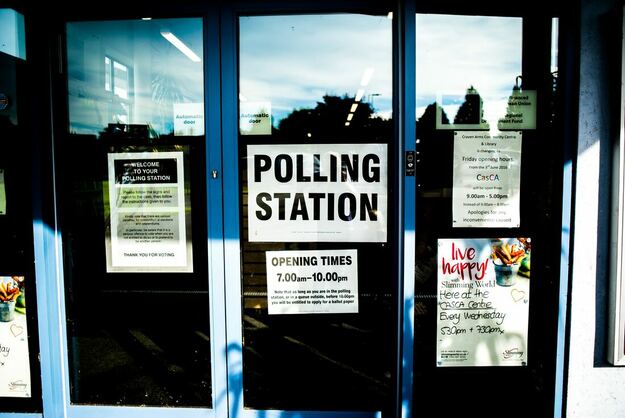|
Corruption is everywhere. According to Transparency International's 2018 Corruption Perception Index report, about two-thirds of countries in the world have very high levels of corruption. Democratic elections are supposed to be a means of granting citizens the voice to penalize corrupt leaders that are benefiting at the expense of the electorate. However, from my experience in my home country, Zimbabwe, and the results in many other developing countries, elections are frequently failing to hold leaders accountable. Elections strengthen dictatorial rule and further corruption by the ruling party under the guise of legitimized support by the voters. The failure to control corruption and lack of transparent administration of elections are a growing threat to democracy. Allegations of election fraud are a common feature of the electoral cycle for most African elections. International observers swarm a country in an attempt to ensure that the incumbent government administers free and fair elections. However, this monitoring does not seem to be a significant deterrent for election fraud given how frequently opposition leaders call elections into question. Just this past month, the elections in the Democratic Republic of Congo (DRC) and Nigeria were initially postponed, raising concerns of corruption and rigging. Election fraud manifests itself across the world in different ways. Several African leaders in power have been accused of employing some of the following tactics to maintain power:
Media as a WeaponIn many countries, media has become a tool for creating more profound polarization around election time. With the rise of the term “fake news,” media is viewed as a less objective source of information for voters. While social media has become a great symbol of democratic expression, these outlets have also been utilized to foster electoral violence and perpetuate propaganda. In developing countries where digitalization is still growing, the government has significant power over the media such that most of the news and advertisements often have a substantial skew in favor of incumbent leaders. The governments in many developing countries also have considerable abilities to censor online communications, as is claimed to have been the primary issue with the Cambodian election last year. Massive crackdowns on social media platforms like WhatsApp have been a key strategy used by incumbent parties to control information disseminated among citizens in developing countries. Violence as a NormThe Nigerian opposition leader, Atiku Abubakar, who denounced the results of the February 23rd election, cited violence as one of the reasons he deemed the electoral process to have been illegitimate. In many elections, opposition leaders and their supporters are suppressed violently through jailing, torture, and even killings allegedly perpetrated by the ruling party. Election sabotage strategies like these lead to unequal public campaign opportunities. When voters’ confidence in the electoral process is undermined, this either leads to violence or voter apathy. In Africa, where youth unemployment is rampant, it is worth noting that politicians often take full advantage of the frustrations of young voters to incite violence. Violence can also be perpetrated by government military forces whose more prominent presence during electoral periods is used more as an intimidation tactic rather than for the protection of citizens. Over the past year, military involvement was a key theme of the elections in Pakistan, Zimbabwe, Bangladesh, Madagascar, and the DRC. Malawi, which is set to have its elections in May, has already begun experiencing violence. The Courts are not a Place for RefugeWhen there is an election dispute, most countries have legal processes in place that is meant to provide an impartial judgment on the validity of the results. Nigeria's Abubakar has chosen to take his complaint to the courts. Several other elections have ended in a similar fashion, but it is unclear whether there are sufficient checks and balances between the courts and the ruling government in most developing countries to grant due process to the candidates contesting the results. The Kenyan court's decision to force a rerun election in 2017 was one of the only recent occasions when a court has ruled against an incumbent president. Even when election observers highlight apparent election irregularities, such international pressures have not stopped inauguration ceremonies from continuing, as was the case in Zimbabwe last year and in the DRC this January. Instead, opposition leaders and their supporters are more likely to be prosecuted during or after the electoral cycle. The perpetuation of such treatment undermines democratic civic participation and may even reduce the number of individuals willing to challenge incumbents. Meanwhile, ruling leaders get away with their use of power to bend constitutional laws in their favor in future elections. The Slow Death of Democracy The problems with election fraud have not only affected developing countries. The President of the United States, Donald Trump, has received his share of allegations due to the questionable involvement of Russia in the 2016 election. State and local elections in the United States have also been scrutinized primarily for voter suppression. Gerrymandering, or the redrawing of district borders in favor of the incumbent party’s voter interests, is a frequent topic of conversation around election fraud in the United States. While institutional corruption and election fraud issues may not affect the US state and federal elections in the same detrimental manner as it does in African elections, such negative trends in electoral accountability are likely to continue raising questions about the legitimacy of democratic electoral systems. It is essential for countries to make more significant efforts to strengthen governance by implementing reforms that improve the role of legal and political systems in ensuring the legitimacy of elections. Failure to come up with innovative solutions to prevent electoral fraud will continue to cause the loss of faith in elections and to threaten the future of democracy, especially in developing nations. Tatenda Mabikacheche
The views expressed above are solely the author's and are not endorsed by the Virginia Policy Review, The Frank Batten School of Leadership and Public Policy, or the University of Virginia. Although this organization has members who are University of Virginia students and may have University employees associated or engaged in its activities and affairs, the organization is not a part of or an agency of the University. It is a separate and independent organization which is responsible for and manages its own activities and affairs. The University does not direct, supervise or control the organization and is not responsible for the organization’s contracts, acts, or omissions.
0 Comments
Your comment will be posted after it is approved.
Leave a Reply. |
Categories
All
Archives
April 2022
|
ADDRESSVirginia Policy Review
235 McCormick Rd. Charlottesville, VA 22904 |
|
SOCIAL MEDIA |

